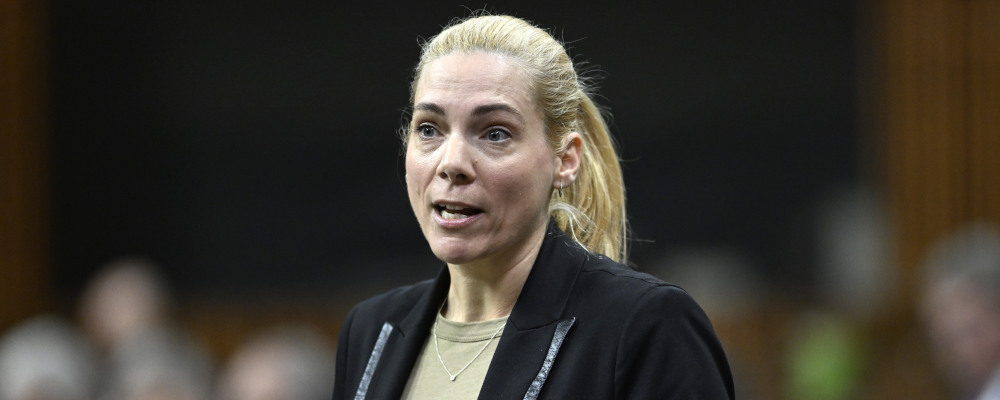Prime Minister Justin Trudeau was asked this week about concerns with the implementation of Bill C-18, to which he responded that other countries are quietly backing Canada in its battle against tech companies.
I posted a reality check tweet noting that Meta is not returning to news in Canada, the law’s regulation stipulating a four percent fee on revenues is not found anywhere else, and that Bill C-18 has emerged as a model for what not to do.
With the House of Commons back in session, it is worth providing a more fulsome reality check on where things stand with the Online News Act. While the government is still talking tough, the law has been an utter disaster, leading to millions in lost revenues with cancelled deals, reduced traffic for Canadian media sites, declining investment in media in Canada, and few options to salvage this mess.
For those that took the summer off, Bill C-18 received royal assent in late June. Over the past three months:
1. Meta has blocked all news links in Canada and cancelled existing deals with Canadian news outlets. The blocked links cover both Canadian and foreign news in light of the broad scope of the law. While the Australian experience lasted a few days, the blocking in Canada has now gone on for weeks and there is little reason to believe that the company will reverse its position to comply with the law by simply not linking to news.
2. The government responded to the blocked news links by stopping its advertising on Facebook and Instagram and encouraging others to do the same. The boycott has had little effect as the Liberal party is still advertising on the platforms with a new round of ads this week, the prime minister is still posting on the platforms, and reports indicate that Facebook has not experienced a reduction in user activity. In fact, reports suggest that the experience on Facebook without news has improved. Further, a Competition Act complaint has not sparked any action.
3. Google responded to Bill C-18 by advising it too would remove news links from its services before the law takes effect in December. That position enabled it to wait for the government to release draft regulations that provide further detail on the application of the law and the standards for obtaining an exemption from the mandatory bargaining process that can lead to final offer arbitration overseen by the CRTC.
4. The draft regulations, which caved in some key issues, were released in early September by new Heritage Minister Pascale St-Onge. The government envisions Google and Meta paying at least 4 percent of search or social media revenues in Canada for a minimum of $234 million. Given the approach in the regulations, that percentage is likely higher. The regulations only require that “some” of the money be spent on journalism and its approach to fair compensation means that the CBC is likely the biggest beneficiary.
5. The government’s estimates from the law are now more than 50 percent higher than they were less than one year ago. No other country in the world has established what amounts to a four percent link tax. In fact, the four percent figure was never discussed at committee in Canada.
6. The effect of the news link blocking in Canada has led to smaller and innovative services laying off staff or stopping all new hiring. Some report losing as much as 50 percent of their website traffic.
7. The CRTC has established a timeline for it to address Bill C-18 regulations that stretch into 2025. In fact, there can be no mandatory bargaining under the law until certain CRTC regulations are concluded, which it says will not happen until late 2024 or early 2025.
8. News Media Canada, the lead lobbyist for Bill C-18, has now told the government that it wants the “temporary” support measures such as the Labour Journalism Tax Credit extended and expanded. The group is seeking government tax credits equal to 35 percent of labour costs. When combined with the roughly 35 percent envisioned by Bill C-18 (in the unlikely event that both tech companies reach agreements), the groups wants 70 percent of news costs paid for government or through government regulation.

9. The Canadian approach has not taken off elsewhere. A California bill was delayed until at least 2024, while a U.S. federal bill may not have sufficient support in the House of Representatives. New Zealand introduced a bill, but with an imminent election, it will not pass. Meanwhile, Australia is now preparing for the expiry of the original 2021 deals between Facebook and media outlets with many expecting that Facebook will not renew the agreements as it shifts away from news worldwide.
10. Looking ahead, there is little hope that Meta will return to news in Canada. If Google follows suit, no Internet company will be subject to Bill C-18. Even if it does reach an agreement, it will not be enough to compensate for the lost revenue and traffic from Meta. In the meantime, investment in the sector has ground to a halt, Canadians have lost access to news on social media, and small and independent media are particularly hard hit. Avoiding the Canadian outcome is now a top policy priority in other countries looking at media legislation.
This column originally appeared on michaelgeist.ca.
Recommended for You

The state of Canada’s economy halfway through 2025

Peter Menzies: It’s no wonder Canadians are tuning out the legacy media

The Notebook by Theo Argitis: Trump halts trade talks, Carney’s trade-offs and John McCallum’s legacy

Lydia Perovic: The future of history looks bleak, if Toronto’s museums are any indication



